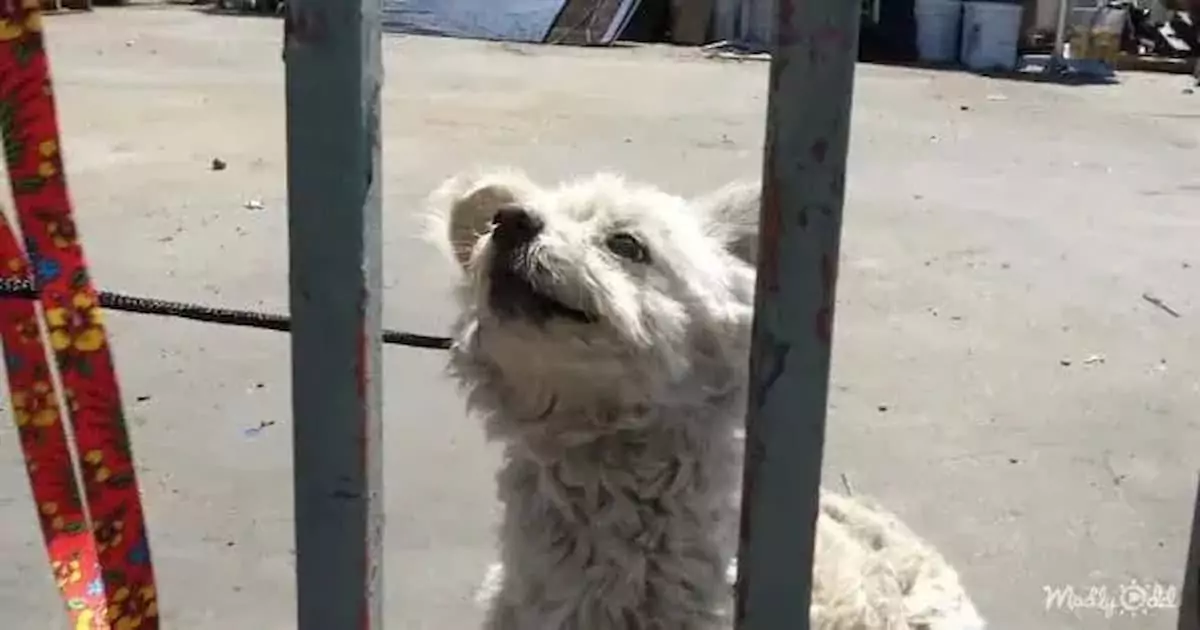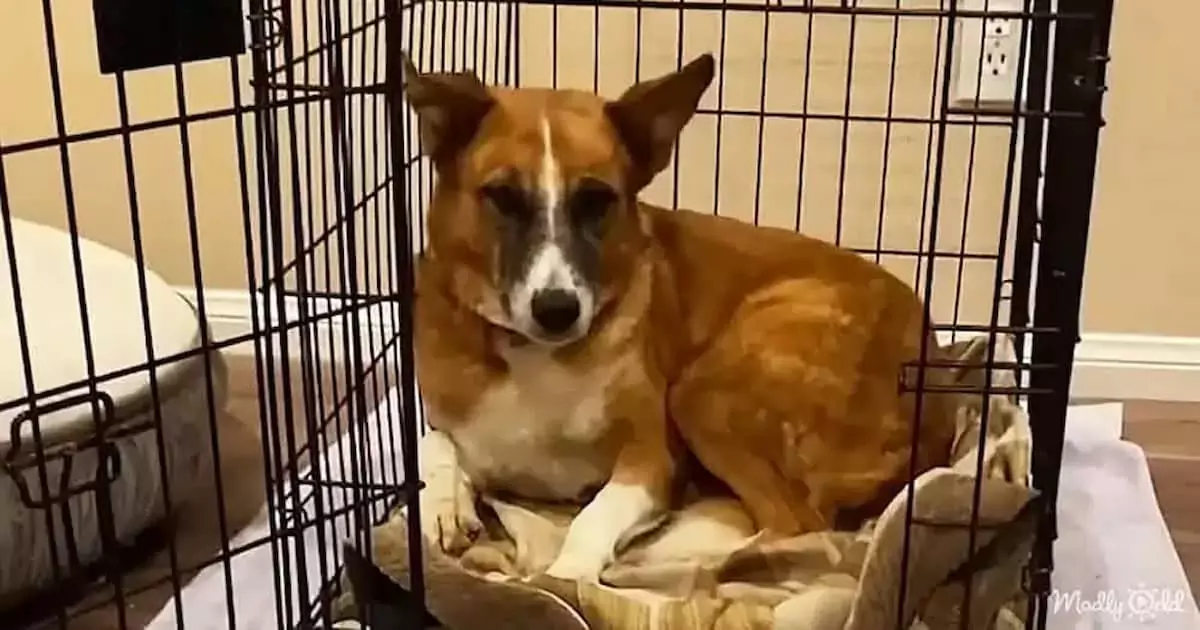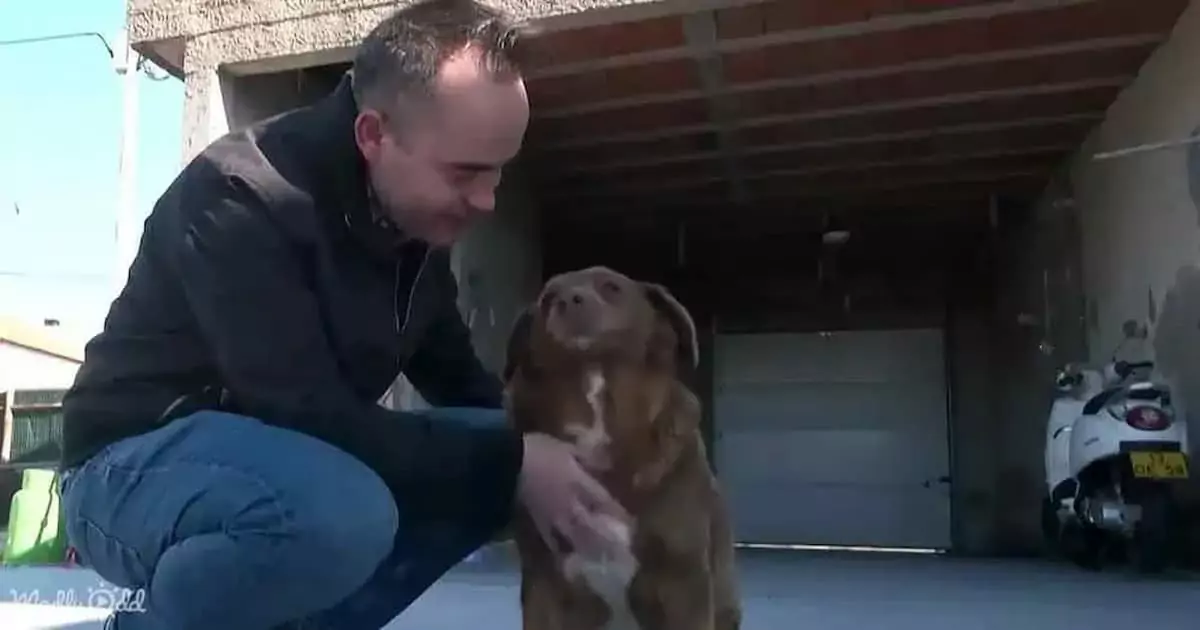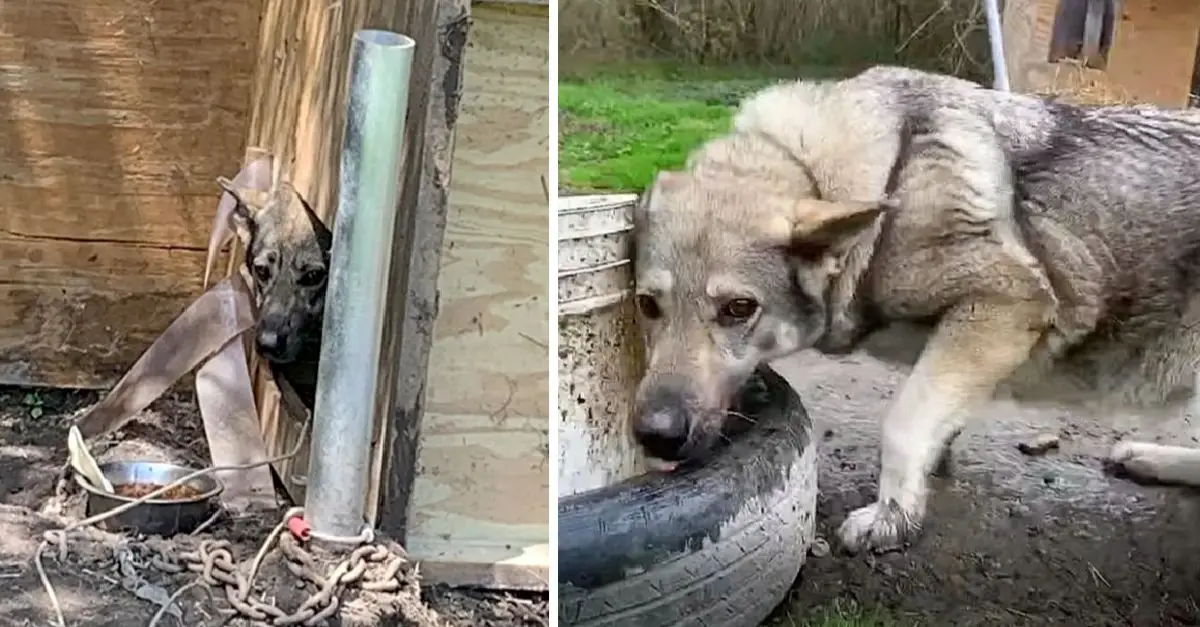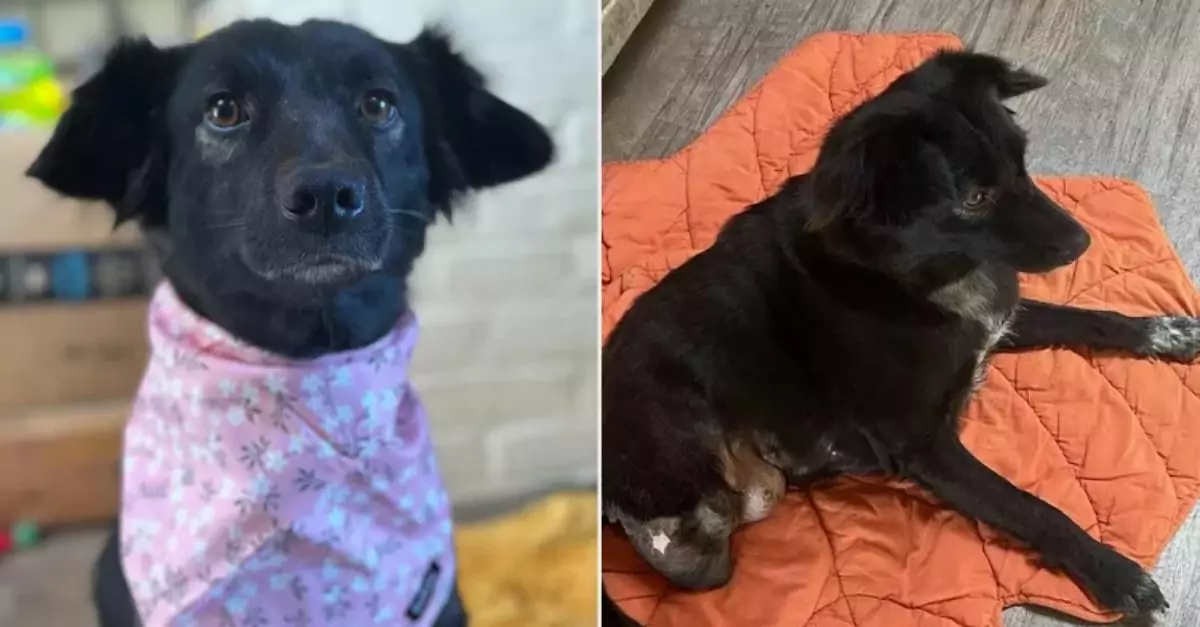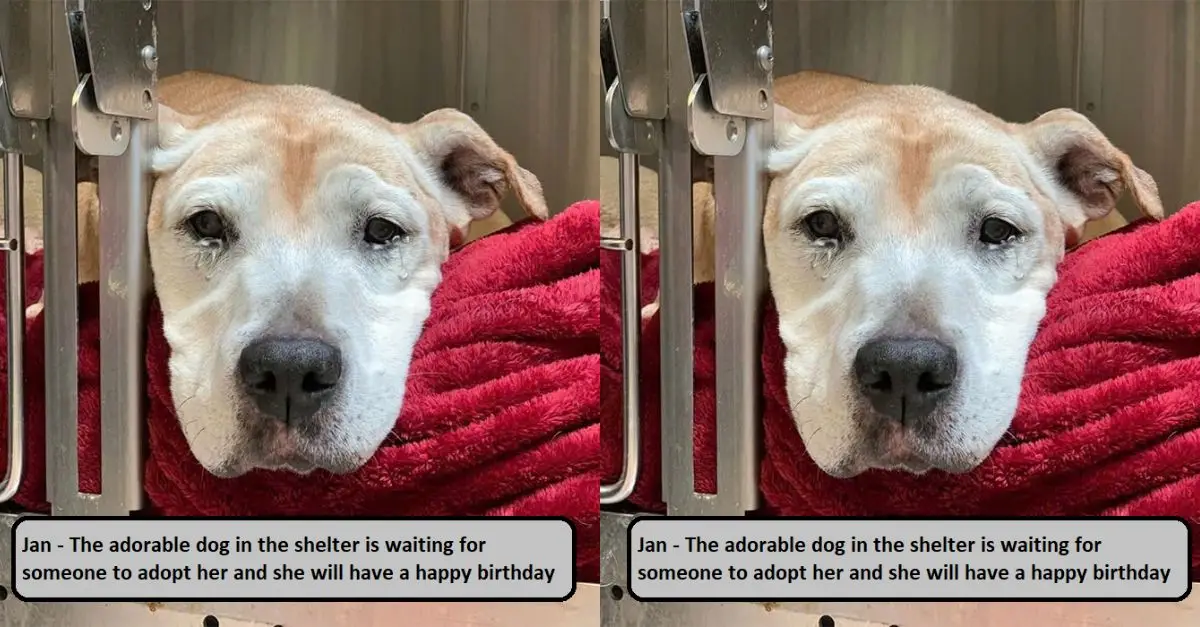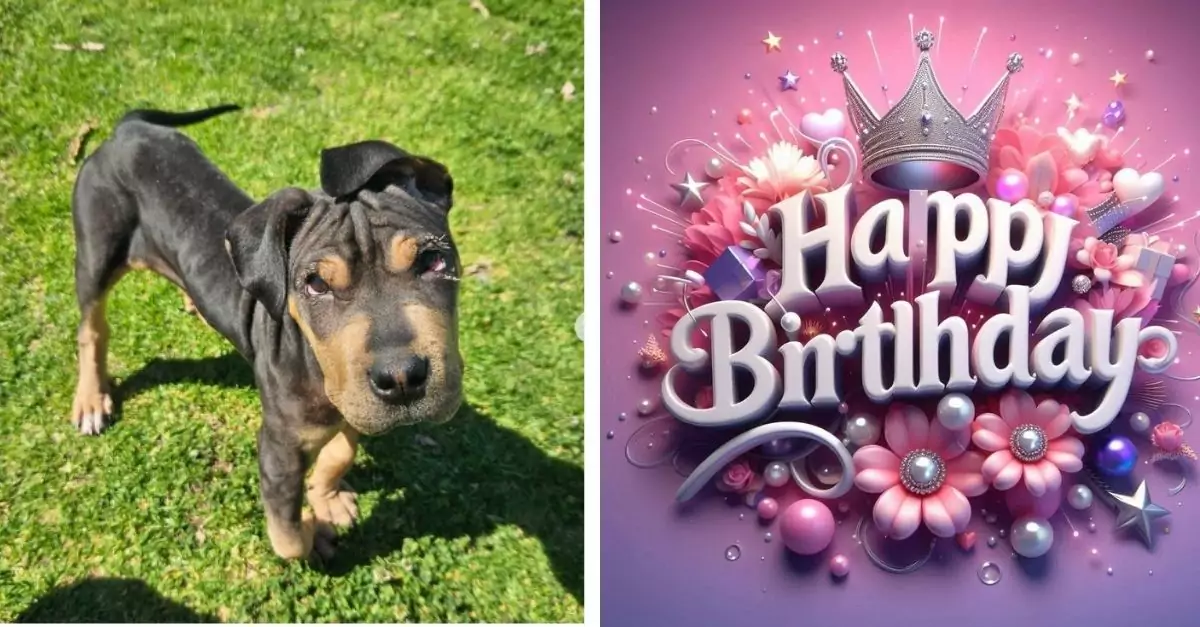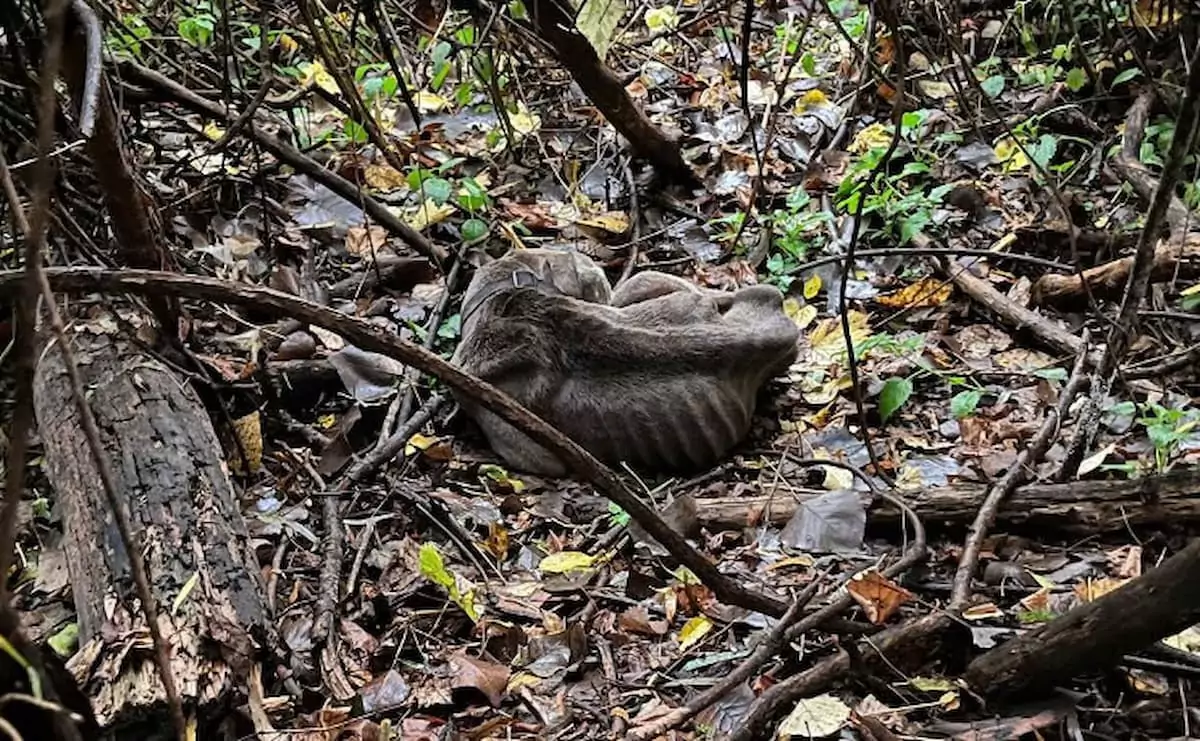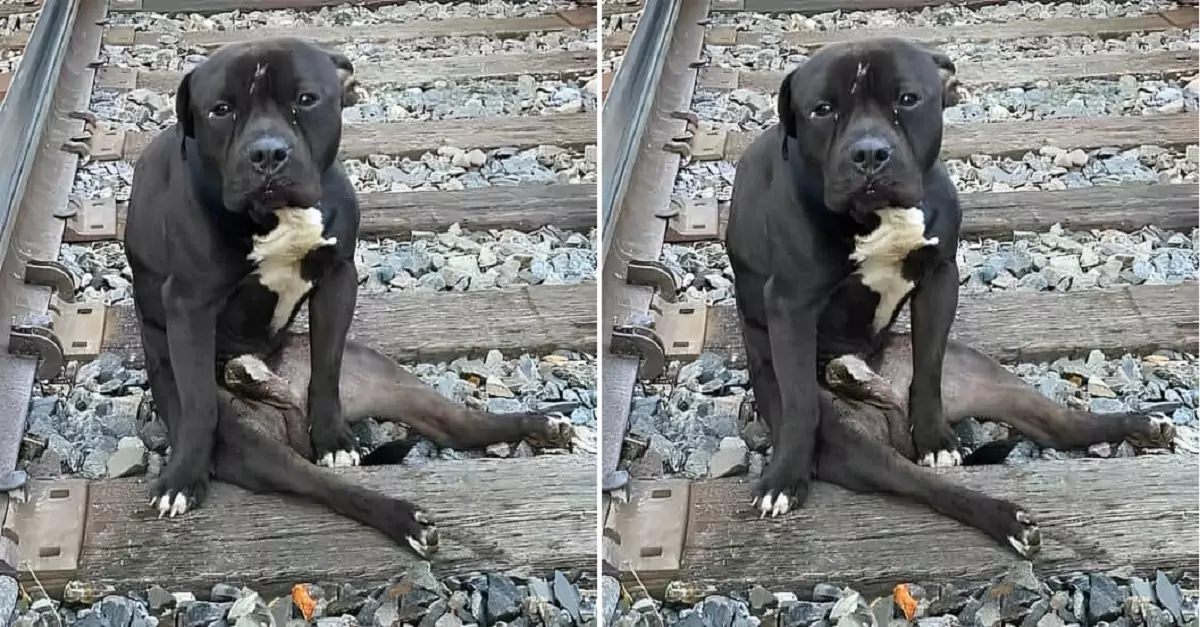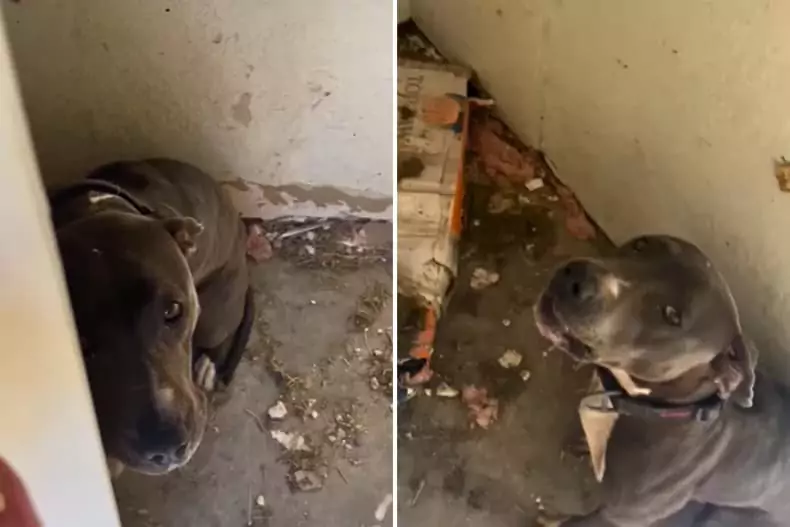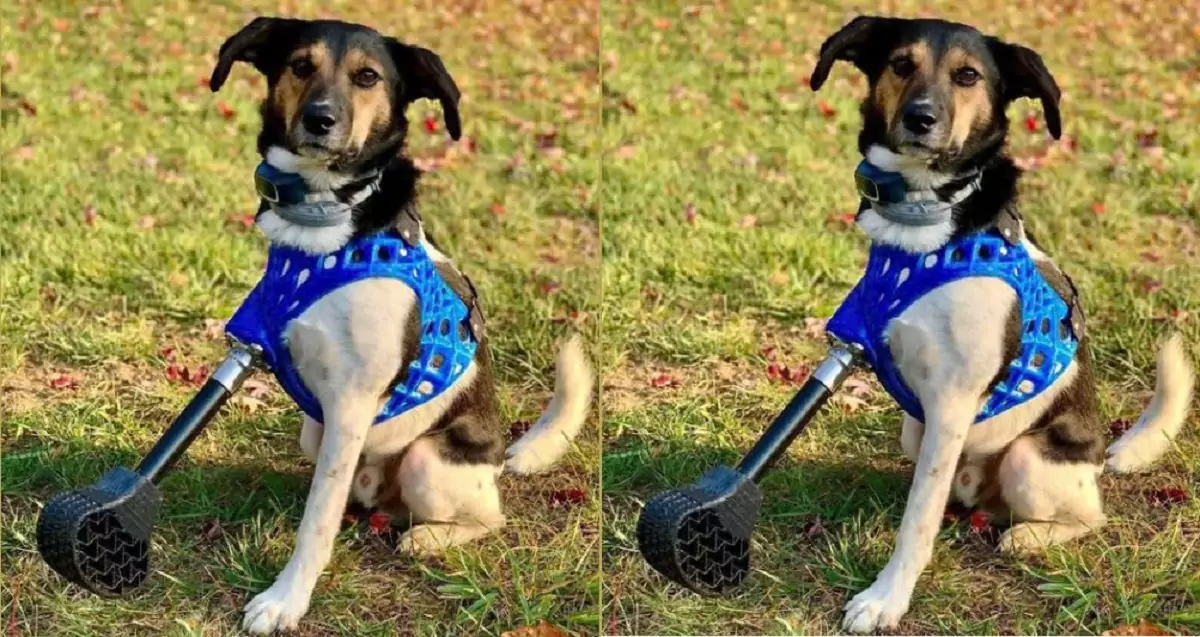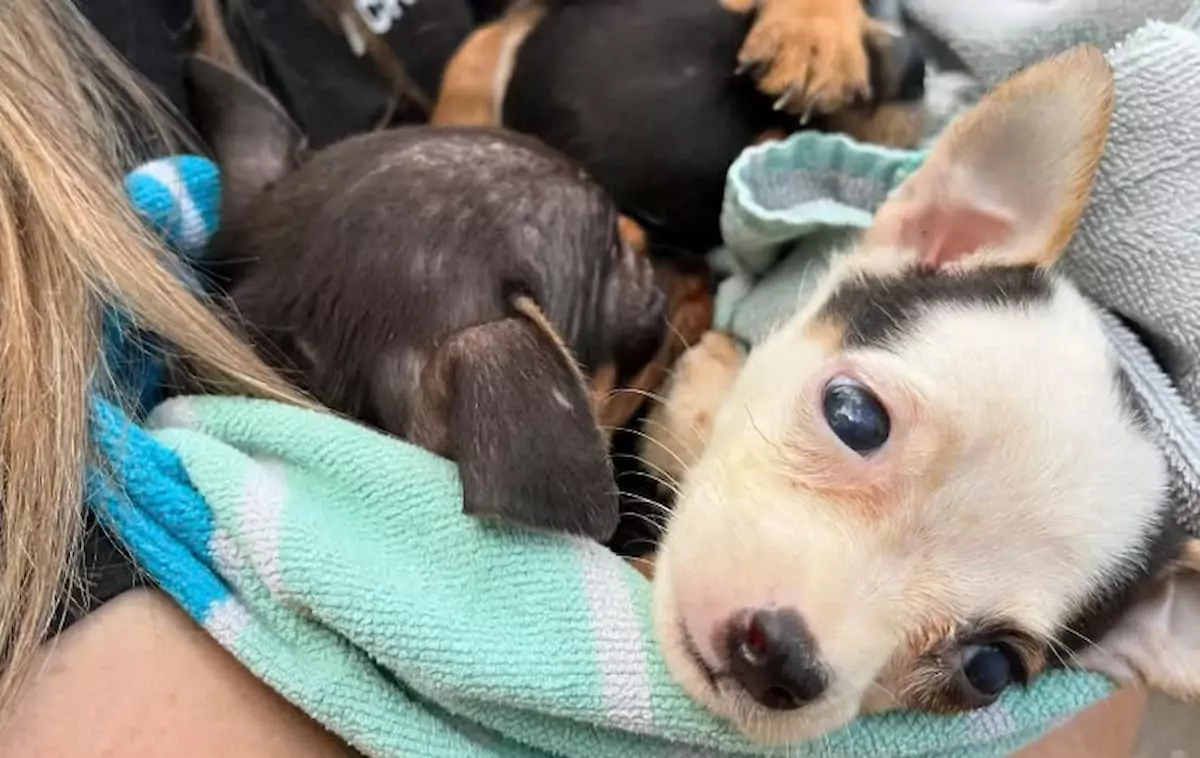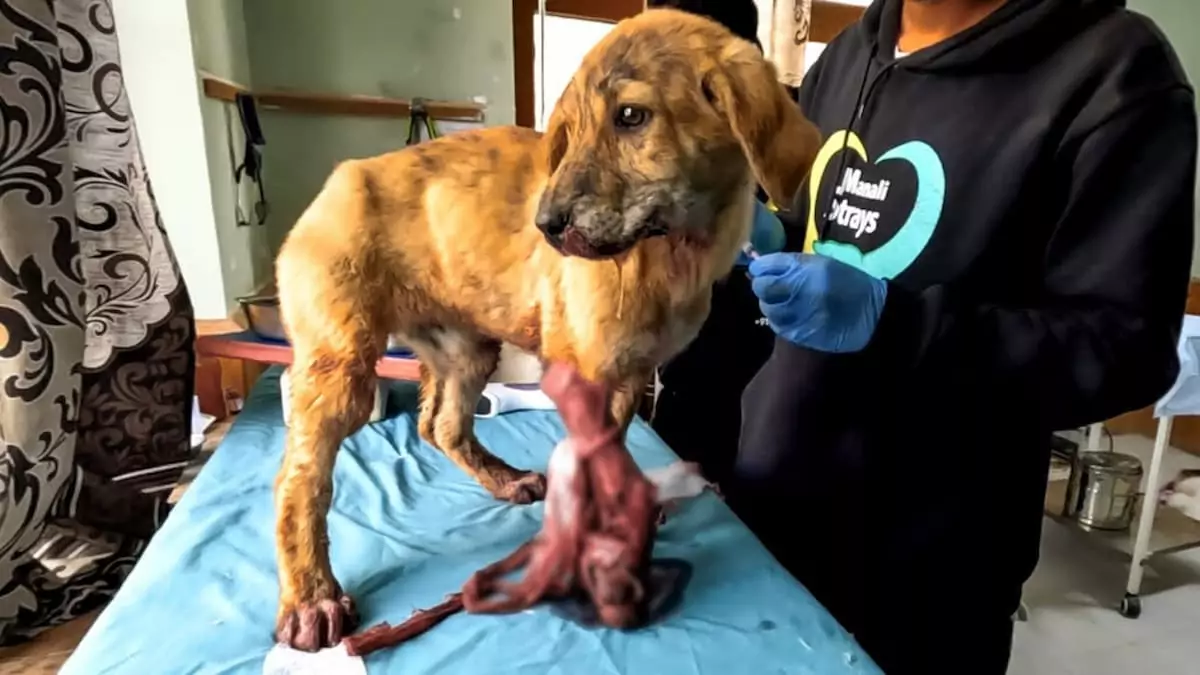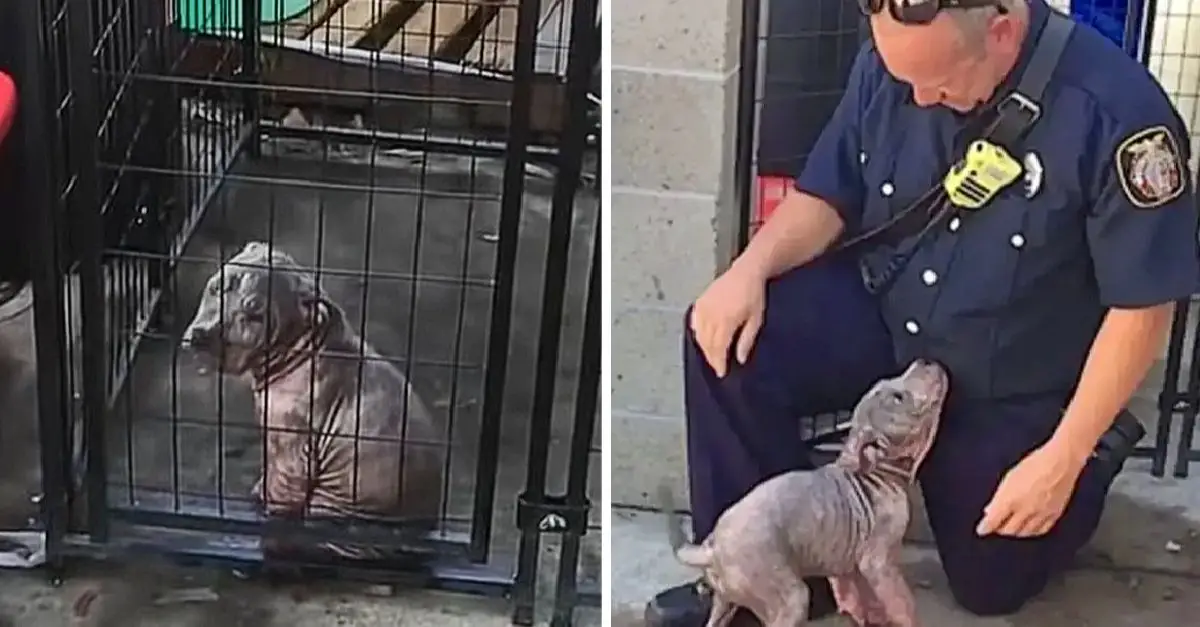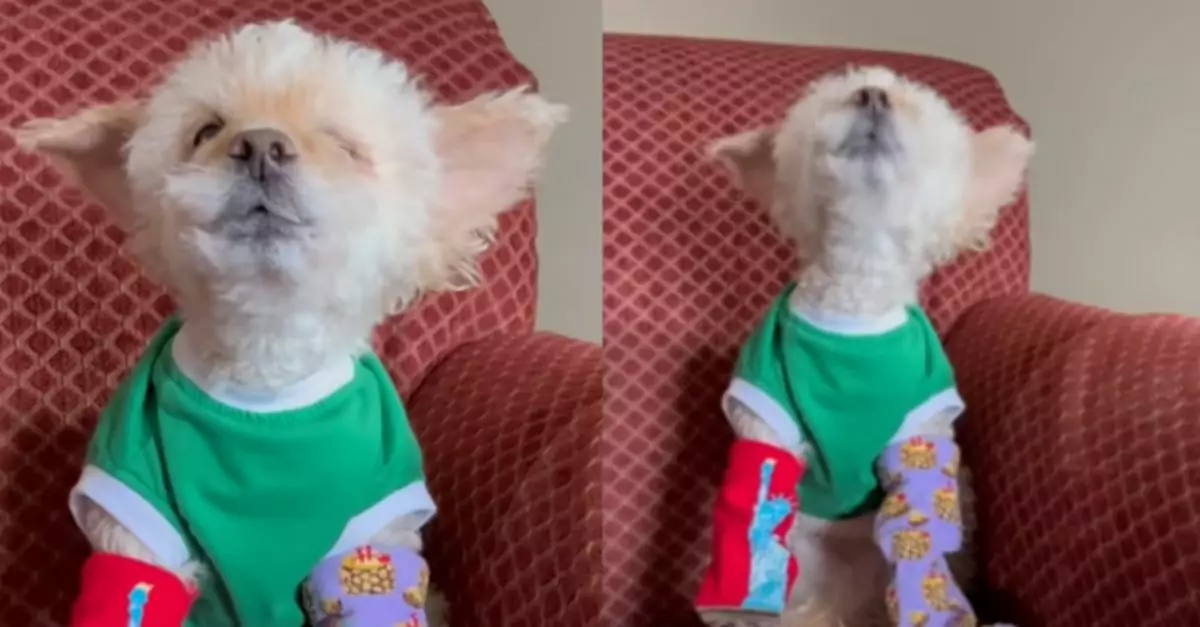Robin was the last one to leave.
The meat farm, once a place of despair and suffering, had been shut down after years of operating in secrecy. Activists and rescuers had worked tirelessly to free the animals trapped within its fences, saving countless lives. But among them all, Robin’s story was the one that clung to the hearts of those who met him.
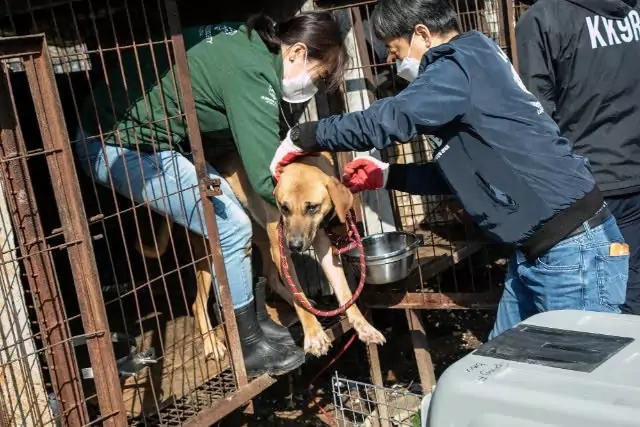
When the rescuers first found him, Robin was huddled in the farthest corner of a filthy cage. His once glossy coat was patchy and riddled with scars, each one telling a story of the pain and neglect he had endured. His body was emaciated, his ribs visible beneath his thin fur, but it was his eyes that revealed the depth of his suffering. They were filled with fear, resignation, and a glimmer of hope he no longer dared to believe in.
Even as the rescuers opened his cage, Robin hesitated. The world beyond those metal bars was unknown to him—a world he had only dreamed of. With gentle coaxing, they managed to carry him out, his trembling body too weak to resist. For the first time in his life, Robin felt the softness of human hands that didn’t bring harm but offered comfort.
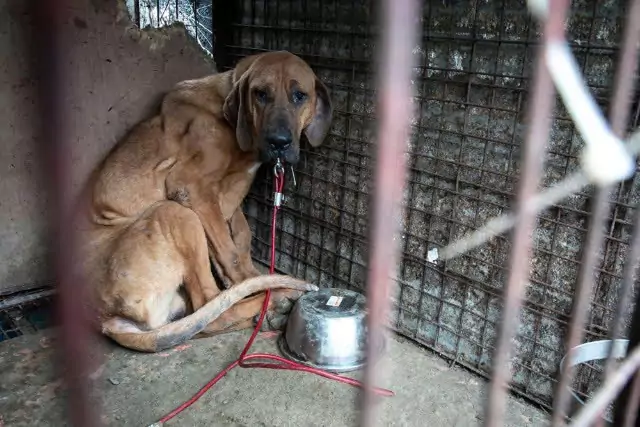
Robin was taken to a rehabilitation center along with the other dogs from the farm. While many of them quickly adapted to their new surroundings, wagging their tails and playing with newfound freedom, Robin lingered in his kennel, watching from a distance. The scars on his body mirrored the ones on his heart, and healing would take time.
Day by day, the staff worked patiently with him. They sat near his kennel, reading aloud or simply being present, giving him the space he needed. One volunteer, a woman named Lily, took a special interest in Robin. She saw past his fear and recognized the courage buried within him.
Lily would bring treats, laying them just out of reach and then slowly moving closer, giving Robin the choice to come to her. At first, he wouldn’t budge, his eyes darting nervously to every movement around him. But one day, hunger and curiosity won. Robin took a hesitant step forward, his nose twitching as he sniffed the treat.
“You’re so brave, Robin,” Lily whispered, her voice gentle and encouraging.
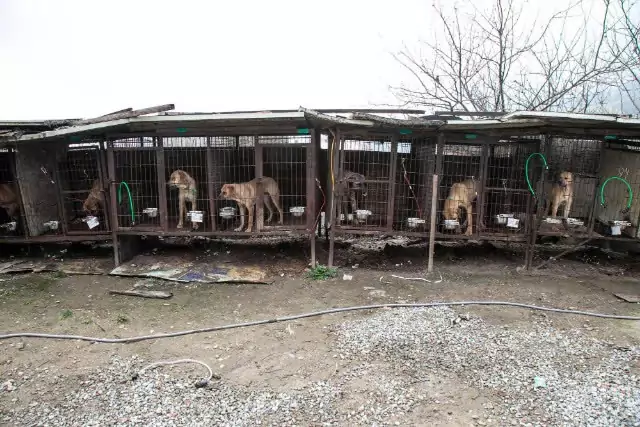
It was a turning point. From then on, Robin began to trust Lily. He let her sit closer, eventually allowing her to touch his scarred fur. Her hands were always soft, her voice always soothing. For Robin, Lily became a symbol of safety in a world that had once been cruel.
Months passed, and Robin made progress. He ventured out of his kennel, walking cautiously into the yard. The grass beneath his paws was unfamiliar but comforting. He began to interact with other dogs, though he always stayed close to Lily. His tail, once perpetually tucked between his legs, began to wag—timidly at first, then with more confidence.
The day Robin was ready for adoption, Lily couldn’t bear the thought of letting him go. She had watched him transform from a dog paralyzed by fear into one who could trust again. And though many families expressed interest in him, Lily knew deep in her heart that Robin belonged with her.
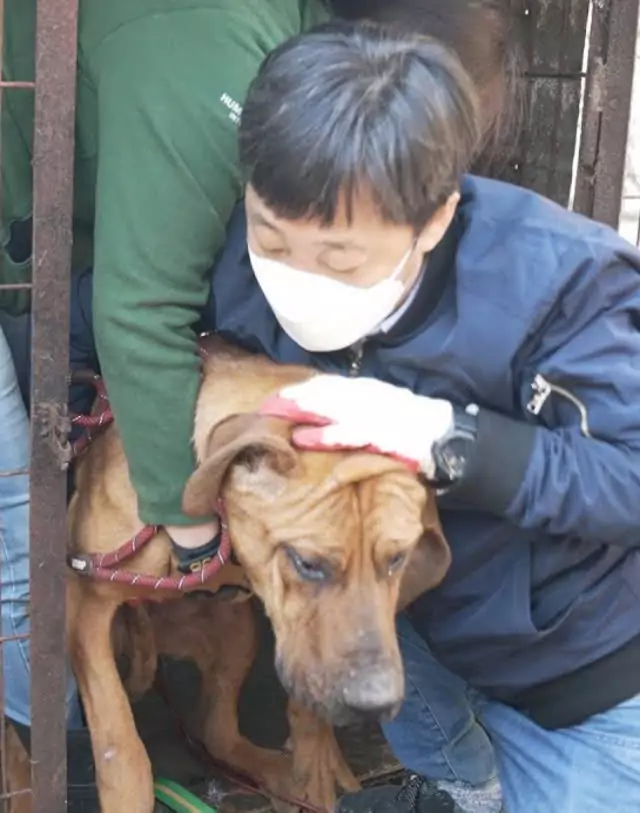
She brought him home, where he discovered the joys of a soft bed, a warm fireplace, and the unconditional love of a family. Robin’s scars would never fully fade, but they no longer defined him. In his new life, he learned to play, to bark with excitement, and to love without fear.
One evening, as Robin lay curled up on Lily’s lap, she stroked his fur and whispered, “You’re home now, Robin. You’re safe.” His eyes, once filled with pain, now glimmered with peace and gratitude.
Robin’s story became a testament to resilience, to the power of kindness and patience. He had been the last to leave the meat farm, but he had found a life worth living—a life filled with love, dignity, and hope.

